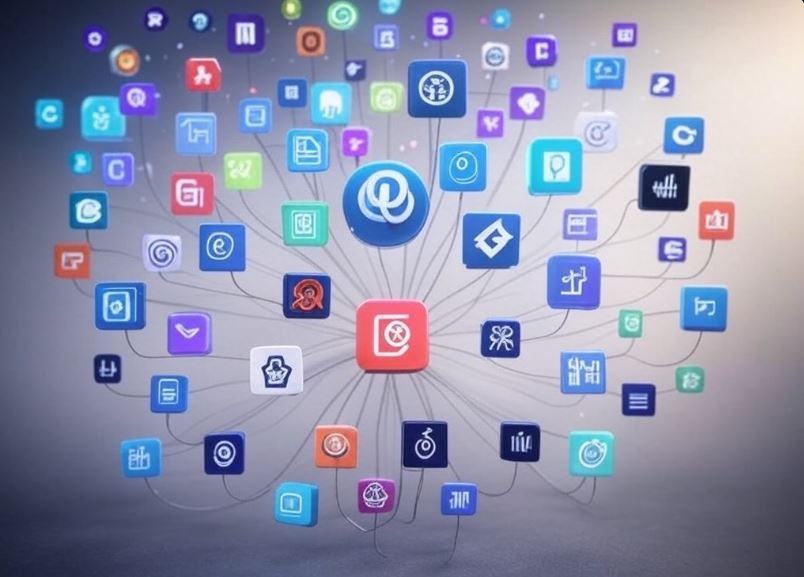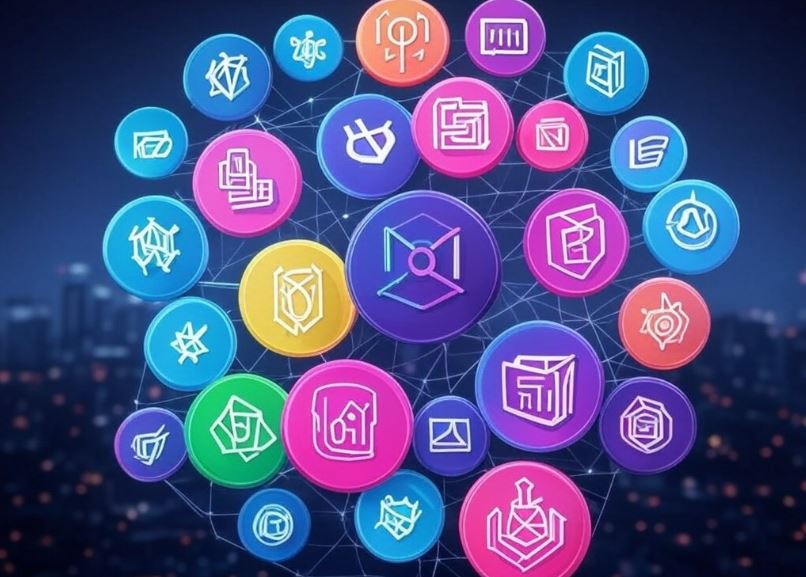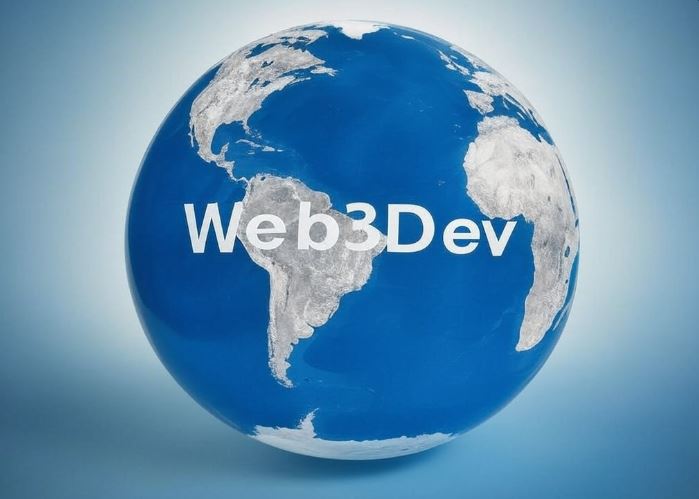
Web3: The next Generation
Web3 refers to the next generation of the internet, which is built on blockchain technology, emphasizing decentralization, security, and user sovereignty. Here are some of the key categories where Web3 applications are being developed or have potential. As you might already know, Web3 applications are still evolving, and the landscape is quite dynamic, but he’s a comprehensive list of categories where Web3 has shown or is expected to show significant applications:
1. Decentralized Finance (DeFi)
- Lending, borrowing, yield farming, decentralized exchanges, stablecoins.
2. Non-Fungible Tokens (NFTs)
- Art, collectibles, gaming assets, virtual real estate, music, and sports memorabilia.
3. Decentralized Autonomous Organizations (DAOs)
- Governance, project management, community funding, and decentralized venture capital.
4. Gaming
- Play-to-earn games, in-game asset ownership, cross-game economies.
5. Supply Chain Management
- Traceability of goods, authenticity verification, inventory management.
6. Identity Management
- Self-sovereign identity, privacy-preserving identity solutions, KYC/AML compliance.
7. Social Media
- Decentralized platforms, user-controlled data, content monetization, censorship resistance.
8. Healthcare
- Secure patient data management, drug supply chain integrity, medical record interoperability.
9. Real Estate
- Property tokenization, smart contract-based property management, fractional ownership.
10. Voting Systems
- Secure and transparent electoral systems, shareholder voting, community governance.
11. Education
- Verifiable credentials, lifelong learning records, decentralized academic records.
12. Energy Trading
- Peer-to-peer energy markets, renewable energy certification, grid management.
13. Insurance
- Smart contract-based claims, parametric insurance, micro-insurance.
14. Data Storage
- Decentralized cloud storage, data markets, privacy-focused storage solutions.
15. Intellectual Property
- Patent and copyright management, royalty distribution.
16. Charity and Philanthropy
- Transparent donation tracking, direct aid, micro-donations.
17. Legal Services
- Smart contract law, dispute resolution through DAOs, legal document verification.
18. Music and Entertainment
- Royalties management, direct artist-to-fan sales, transparent licensing.
19. Advertising
- Ad fraud prevention, targeted ads with privacy, reward-based advertising.
20. Internet of Things (IoT)
- Device-to-device payments, secure data exchange, decentralized control systems.
21. Travel and Hospitality
- Peer-to-peer booking, loyalty programs, property management.
22. Crowdfunding
- Decentralized fundraising, tokenized investment opportunities.
23. Sports
- Fan engagement, virtual merchandise, betting transparency.
24. Human Resources
- Decentralized hiring platforms, credential verification, payroll automation.
25. Content Creation
- Decentralized platforms for writers, video creators, with monetization tools.
26. Environmental Impact
- Carbon credit trading, climate action transparency, sustainable practices certification.
27. Cybersecurity
- Decentralized security solutions, encrypted communications, secure identity solutions.
28. Retail
- Loyalty programs, supply chain transparency, counterfeit goods prevention.
29. Manufacturing
- Smart contracts for supply chain, quality control, equipment maintenance.
30. Agriculture
- Traceability from farm to table, smart farming contracts, land ownership records.
31. Telecommunications
- Decentralized networks, secure communication protocols, tokenized bandwidth.
32. Media and News
- Micropayments for content, credibility through blockchain, decentralized journalism.
33. Automotive
- Vehicle history tracking, car sharing, parts authenticity.
34. Art and Culture
- Provenance tracking, artist support systems, cultural heritage preservation.
35. Food Safety
- Traceability to prevent contamination, verifying organic claims.
36. Banking Services
- Cross-border payments, banking for the unbanked, AML compliance.
37. Waste Management
- Recycling incentives, waste tracking, circular economy initiatives.
38. Compliance and Regulation
- Automated compliance checks, regulatory reporting, privacy compliance.
39. Event Management
- Ticketing to prevent scalping, transparent event revenue distribution.
40. Mining and Resources
- Ownership tracking, environmental compliance, mining rights.
41. Construction
- Smart contracts for project management, material verification, payment automation.
42. Fashion
- Authenticity verification, supply chain transparency, consumer engagement.
43. Education Finance
- Student loans, scholarships, transparent funding.
44. Public Services
- Transparent government spending, e-voting, land registry.
45. Aviation
- Aircraft maintenance records, parts tracking, ownership fractionalization.
46. Legal Tech
- Smart contract templates, automated legal advice, dispute resolution.
47. Digital Twins
- Asset management, lifecycle tracking, predictive maintenance.
48. Space Industry
- Satellite data markets, space asset management, decentralized space exploration funding.
49. Mental Health
- Secure data handling, peer support networks, transparent therapy platforms.
50. Philately and Numismatics
- Authenticating rare stamps and coins, creating digital collectibles.
Remember, the application of Web3 technologies in these areas is still in various stages of development and adoption. The effectiveness and prominence of these applications can vary widely.

In Depth
- Decentralized Finance (DeFi):
- Explanation: DeFi uses blockchain to offer financial services such as borrowing, lending, trading, and saving without the need for traditional financial intermediaries like banks. It aims to create an open, permissionless, and transparent financial ecosystem.
- Non-Fungible Tokens (NFTs):
- Explanation: NFTs are unique digital assets that represent ownership or proof of authenticity of a specific item or piece of content, ranging from art, music, to virtual real estate. They’re used for digital ownership, art markets, gaming items, and more.
- Decentralized Autonomous Organizations (DAOs):
- Explanation: DAOs operate through rules encoded as smart contracts on the blockchain, allowing for community-driven governance and decision-making. They can manage funds, projects, or enterprises without centralized leadership.
- Gaming:
- Explanation: Web3 introduces true ownership of in-game assets, allowing players to own, trade, or sell items across different games or platforms. This includes play-to-earn models where players can earn cryptocurrency or NFTs.
- Supply Chain Management:
- Explanation: Blockchain can provide a transparent, immutable ledger for tracking products from manufacturer to consumer, enhancing traceability, reducing fraud, and improving efficiency.
- Identity Management:
- Explanation: Web3 enables decentralized identity systems where users control their personal data, reducing reliance on centralized data silos, enhancing privacy, and security against data breaches.
- Social Media:
- Explanation: Decentralized social networks aim to give users control over their data, privacy, and content monetization. Users can own their content, have fewer restrictions, and potentially earn from their engagement or contributions.
- Healthcare:
- Explanation: Blockchain can secure patient data, streamline medical record sharing among providers, ensure the integrity of pharmaceutical supply chains, and facilitate research data sharing while protecting privacy.
- Real Estate:
- Explanation: Tokenization of property allows for fractional ownership, making investment in real estate more accessible. Smart contracts can automate transactions, leases, and property management.
- Voting Systems:
- Explanation: Blockchain can be used to create secure, transparent, and verifiable voting systems, which could apply to elections, shareholder votes in companies, or community decisions within DAOs.
- Education and Certifications:
- Explanation: With blockchain, educational records and certifications can be stored in a way that they are verifiable, immutable, and directly owned by the individual, reducing fraud and enhancing the credibility of qualifications.
- Energy Trading:
- Explanation: Distributed energy resources like solar panels can be managed and traded on peer-to-peer networks, enabling more efficient use of renewable energy and supporting the transition to sustainable energy systems.
- Insurance:
- Explanation: Smart contracts can automate claims processing, reduce fraud, and tailor insurance products to individual needs in a decentralized manner.
Each of these categories leverages the core principles of Web3—decentralization, transparency, and security—to address various challenges in traditional systems or to create entirely new paradigms for interaction and value exchange.

The Web3 Landscape
The Web3 landscape is rapidly evolving, but here’s an extensive list categorizing various areas where Web3 technologies are making or could make an impact:
1. Decentralized Finance (DeFi)
- Lending
- Borrowing
- Yield Farming
- Decentralized Exchanges (DEXs)
- Stablecoins
- Options and Futures
- Asset Management
- Insurance
- Derivatives
- Prediction Markets
- Synthetic Assets
2. Non-Fungible Tokens (NFTs)
- Digital Art
- Collectibles
- Virtual Real Estate
- Gaming Assets
- Music and Audio
- Sports Memorabilia
- Fashion Items
- Digital Identities
- Event Tickets
- Certificates
- Licenses
3. Decentralized Autonomous Organizations (DAOs)
- Project Management
- Governance
- Investment Funds
- Community Funding
- Cooperative Enterprises
- Venture Capital
- Charity Organizations
- Artist Collectives
- Content Creation Networks
- Legal Entities
4. Gaming
- Play-to-Earn
- Metaverse Platforms
- In-Game Economies
- Blockchain Games
- eSports
- Gambling
- Virtual World Building
- Game Item Trading
- Tournaments and Competitions
- Game Development Platforms
5. Supply Chain Management
- Product Traceability
- Authenticity Verification
- Inventory Management
- Logistics
- Counterfeit Prevention
- Quality Control
- Compliance Management
- Raw Material Sourcing
- Food Safety
- Pharmaceutical Tracking
6. Identity Management
- Self-Sovereign Identity
- Privacy-Preserving Solutions
- Decentralized ID Verification
- KYC/AML Compliance
- Digital Signatures
- Reputation Systems
- Access Control
- Certification Services
- Credential Management
- Secure Messaging
7. Social Media
- Decentralized Networks
- Content Monetization
- Censorship Resistance
- Data Ownership
- Peer-to-Peer Communication
- Social Tokens
- Influencer Platforms
- Microblogging
- Forums and Communities
- Privacy-Focused Platforms
8. Healthcare
- Medical Records Management
- Drug Supply Chain
- Patient Data Security
- Clinical Trial Data Sharing
- Telemedicine Platforms
- Health Insurance
- Genetic Data Storage
- Wellness and Fitness Tracking
- Nutrition Supply Chain
- Medical Research Funding
9. Real Estate
- Property Tokenization
- Fractional Ownership
- Rent Control Systems
- Property Management
- Title Deeds
- Land Registry
- Smart Leases
- Real Estate Investment Trusts (REITs)
- Property Development
- Real Estate Marketplaces
10. Voting Systems
- Electoral Systems
- Shareholder Voting
- Community Governance
- Polls and Surveys
- Public Policy Decision Making
- Transparent Election Monitoring
- Decentralized Decision Making
- Voting Incentives
- Proxy Voting
- Referendums
11. Education
- Verifiable Credentials
- Lifelong Learning Records
- Educational Funding
- Peer-to-Peer Learning
- Academic Records
- Certification and Accreditation
- Educational Content Marketplaces
- Research Collaboration
- Skill Verification
- Online Course Platforms
12. Energy Trading
- Peer-to-Peer Energy Markets
- Renewable Energy Certification
- Grid Management
- Carbon Credit Trading
- Energy Efficiency Rewards
- Solar and Battery Sharing
- Decentralized Energy Systems
- Energy Investment
- Transparency in Energy Use
- Sustainable Practices
13. Insurance
- Smart Contract Insurance
- Parametric Insurance
- Peer-to-Peer Insurance
- Micro-Insurance
- Weather Insurance
- Health Insurance
- Property and Casualty
- Life Insurance
- Auto Insurance
- Travel Insurance
14. Data Storage
- Decentralized Cloud Storage
- Data Markets
- Encrypted Data Sharing
- Backup Solutions
- Data Sovereignty
- Privacy Solutions
- Data Integrity Checks
- Distributed Databases
- Content Delivery Networks (CDN)
- Data Provenance
15. Intellectual Property
- Copyright Management
- Patent Registration
- Royalty Distribution
- Trademark Management
- Licensing Agreements
- Music Rights
- Art Authentication
- Software Licensing
- Patent Pools
- Open Innovation
16. Charity and Philanthropy
- Transparent Donations
- Direct Aid
- Micro-Donations
- Crowdfunding for Social Good
- Impact Tracking
- Volunteer Matching
- Disaster Relief Funding
- Charity Governance
- Social Impact Bonds
- Endowment Funds
17. Legal Services
- Smart Contract Law
- Dispute Resolution
- Legal Document Management
- Notarization
- Contract Automation
- Legal Compliance
- Intellectual Property Rights
- Privacy Law Compliance
- Legal Advice Platforms
- Court Records
18. Music and Entertainment
- Royalties Management
- Direct Sales to Fans
- Licensing Transparency
- Artist Platforms
- Music Streaming
- Film Financing
- Virtual Concerts
- Fan Tokens
- Talent Discovery
- Content Distribution
19. Advertising
- Fraud Prevention
- Privacy-Focused Advertising
- Reward-Based Systems
- Targeted Advertising
- Decentralized Ad Networks
- Content Monetization
- Influencer Marketing
- Loyalty Programs
- Data Transparency
- Ad Verification
20. Internet of Things (IoT)
- Secure Device Communication
- Device Payments
- Data Integrity
- Smart Home Automation
- Supply Chain Sensors
- Healthcare IoT
- Industrial IoT
- Energy Management
- Privacy in IoT
- Smart City Applications
This list covers a broad spectrum of applications and is by no means exhaustive but reflects the diverse ways Web3 technologies can be implemented across sectors. Some categories might overlap, and new niches will likely emerge as technology evolves.
Contact Web3Dev to make your Web3 dreams come to life.



